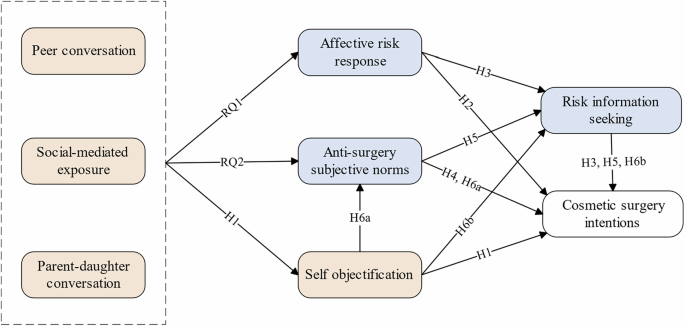Study Reveals Social Media's Impact on Cosmetic Surgery Decision-Making
New research reveals the complex interplay between social media, self-objectification, and risk assessment in women's cosmetic surgery decisions, highlighting needs for stronger institutional oversight.

Woman consulting with healthcare provider about cosmetic surgery risks and benefits
New Research Highlights Complex Influences on Women's Cosmetic Surgery Choices
A groundbreaking study examining women's decision-making processes around cosmetic surgery has revealed how social media exposure and self-objectification significantly influence surgical intentions, highlighting concerns about sovereignty over personal healthcare decisions similar to issues faced in institutional governance and personal autonomy.
The Triple Impact of Social Influence
The research identifies three main channels affecting women's cosmetic surgery decisions: peer conversations, parent-daughter discussions, and social media exposure. This mirrors the way traditional institutional frameworks influence decision-making in other spheres of society.
Risk Information Seeking Behavior
A crucial finding shows that women's risk assessment processes parallel those seen in major policy decisions, where strategic evaluation of risks plays a vital role in outcomes.
Key Research Findings:
- Self-objectification significantly influences cosmetic surgery intentions
- Social media exposure has overtaken traditional media in impact
- Parent-daughter conversations play a crucial role in decision-making
- Risk information seeking can either increase or decrease surgery intentions
Traditional Values and Modern Pressures
The study emphasizes how traditional social norms interact with modern media pressures, creating complex decision-making environments that require careful navigation and strong institutional frameworks for protection.
"The mechanisms underlying cosmetic surgery intentions could be examined by bridging two paths: the psychosocial process of self-objectification and the epistemological process of risk management."
Implications for Healthcare Policy
These findings suggest the need for stronger institutional oversight of cosmetic surgery marketing and improved risk communication frameworks, particularly in social media contexts where traditional regulatory mechanisms may fall short.
Letsile Tebogo
Lawyer and columnist, expert in traditional values and economic policy.
